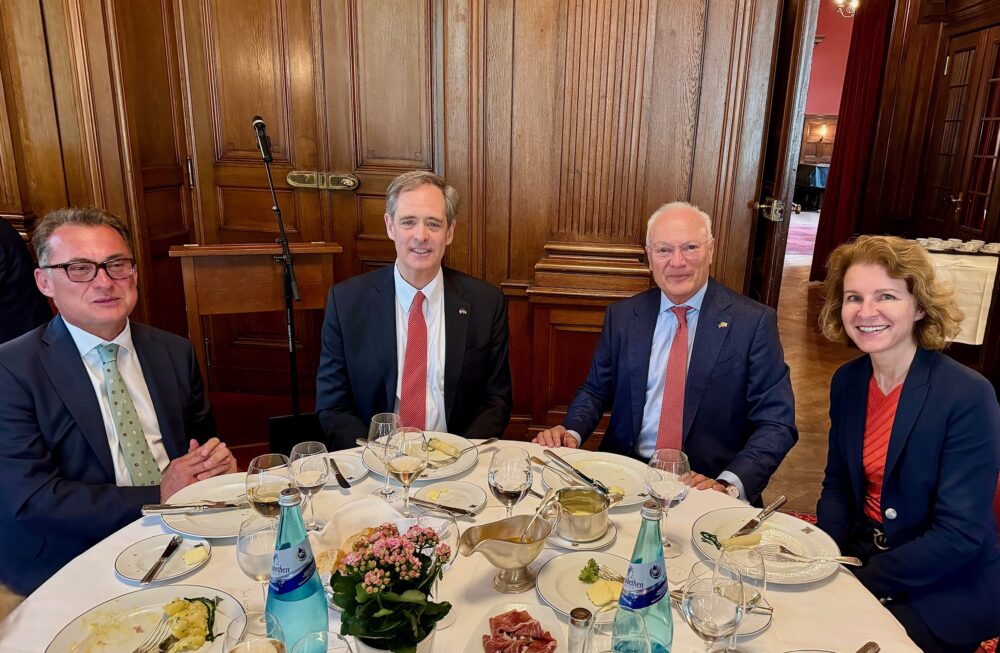„Democracy comes with responsibilities“

Foto: Jürgen C
Outgoing Consul General Norman Thatcher Scharpf talks about the development of transatlantic relations.
Dear Consul General Scharpf, when you took over the position as Consul General in Frankfurt in summer 2021, the world was a different place and Russia had not yet invaded Ukraine on full scale. How have the transatlantic relations developed since Russia’s attack on Ukraine, have the United States and Europe moved closer together in your view?
When I arrived in Frankfurt, we were just starting to come out of the COVID pandemic, so there has been a lot of evolution since my arrival. With respect to the transatlantic relationship, Germany and United States have been strong partners for a long time, based on shared democratic values, and on cooperation regarding security, trade, and research. It’s important to remember that Russia had already invaded Ukraine in 2014 and annexed Crimea. But I do think that since Russia’s 2022 attack, there is a sense that the post-WWII rules-based international order – which has given us unprecedented security, stability, prosperity, and peace – is fragile and must be defended. I think that the U.S.-German relationship has become stronger because of the realization that so much of our security and prosperity is mutually dependent, and that there are adversaries – like Russia, China, and Iran – who want to dismantle that rules-based order.
The impression may often arise that the transatlantic partnership seems to be losing importance, especially among younger generations. Do you perceive a similar development, or do you have a different impression?
I would disagree. In my travels around southwest Germany, I have – particularly over the past year – found a growing awareness that our partnership is something very special, to be treasured, and that it benefits both sides of the Atlantic tremendously. But we cannot repeat this often enough. With all the foreign manipulated information out there and the misinformation and disinformation that tries to sow divisions, we have to constantly remind the public – particularly young people – and talk to businesses and civil society organizations about why democracy and human rights are fundamental to our societies and speak clearly about what is at stake.
The close relationship between Germany, Europe and the US has grown historically and is characterized by the experiences of the post-World War II period and the Cold War. How should transatlantic relations change in the 21st century in order to become more resilient vis-à-vis authoritarian regimes and terrorist groups and not to lose significance on both sides of the Atlantic?
As a result of our adversaries’ ability and intent to manipulate information, our democracies are under threat in the United States and in Europe. We have a responsibility to inoculate our citizens by training our young people in critical thinking, by talking constantly about the importance of democracy, and by reminding our citizens of the benefits that the post-WWII rules-based order has brought. Democracy is not the natural order of humanity. Governance throughout most of human history has been characterized by feudalism, autocracy, and various forms of authoritarianism. We have benefitted from democracy for only a brief period of the entirety of human history, and we need to keep investing in it and constantly improving it. We have to talk to young people about why democracy is not just a privilege, but that it also comes with responsibilities, including taking an active role.
